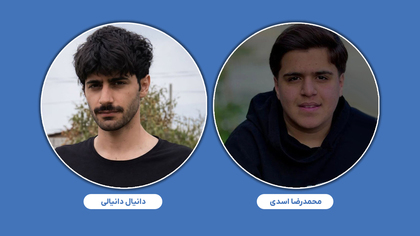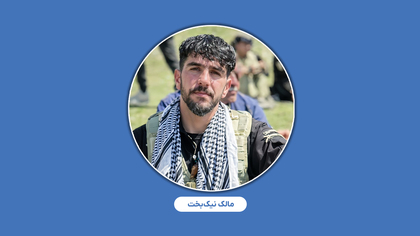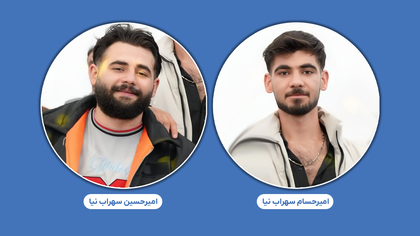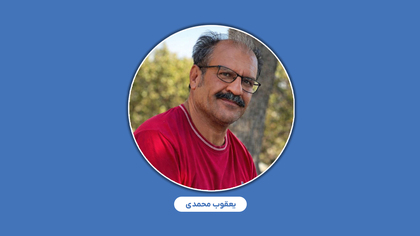Iranian Dissidents Ask for U.S. Help
02:17 - 27 July 2012
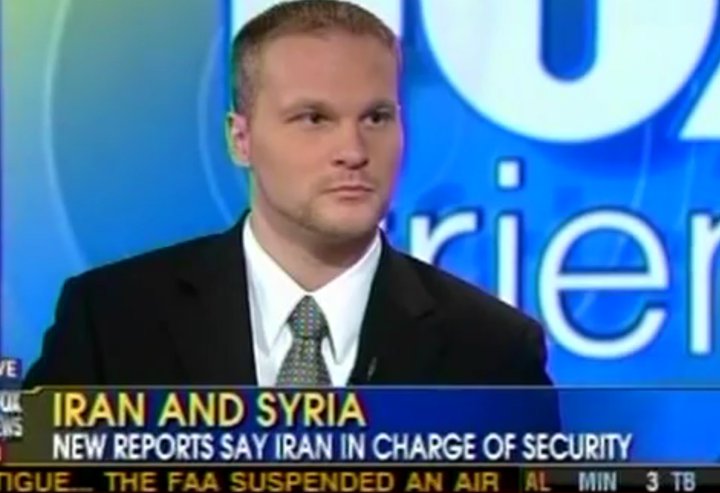
By Ryan Mauro
On July 13, a group of over 100 opponents of the Iranian regime crammed into a small conference room in McLean, V.A. to honor a Kurdish leader assassinated by the regime. The audience, mostly Kurds, was also there to explore a question that has been on their minds for years, even decades: Why won\'t the U.S. help us overthrow a terror-sponsoring regime that supports its enemies?
The event honored Dr. Abdul Rahman Ghassemlou, an Iranian-Kurdish leader murdered by the regime\'s agents in Vienna in 1989. It was put together by United Kurdish Youth for Human Rights, KurdCenter, the Leadership Council for Human Rights and Sara Akrami, founder and President of the Human Rights Association at York University. Akrami, a half-Kurdish Iranian, views the Kurds as an essential part of any organized opposition to the regime. Her activism, such as showing the film Iranium on campus, has earned her death threats. Thanks to the Institute on Religion and Democracy, I was able to speak at the event.
The argument most commonly used by opponents of backing the opposition is that outside help is unwanted and counter-productive. President Obama explained his silence during the 2009 Green Revolution with, \"It is not productive, given the history of U.S. and Iranian relations, to be seen as meddling in Iranian elections.\" The Iranians I spoke to couldn\'t disagree more and many nodded in agreement when Kathryn Cameron Porter said she is \"ashamed\" of voting for President Obama because of his stance on this issue.
Dr. Ivan Sascha Sheehan of Baltimore University fired up the audience with his denunciations of how the U.S. has handled the Iranian opposition. They especially sympathized with his statement that the West has used them as bargaining chips at the negotiating table, using them to influence the regime instead of replacing it.
\"President Clinton tested the theory that non-support for the Iranian resistance would curry favor with Iran\'s leaders and stem the tide of violence, the flow of weapons, and the state-sponsored bloodshed. The regime\'s campaign to silence dissenting voices was the only victor in this strategy,\" he said in a follow-up interview.
Another concern often voiced by proponents of non-action is that Iran, where minorities make up about half of the population, will turn into a sectarian bloodbath. A potential Kurdish declaration of independence could spark a war between Turkey and Kurds in the region, not to mention fighting with other ethnic groups. It\'s part of how Americans view every conflict \"through the prism of Iraq,\" as I told the audience.
Carol Prunhuber, author of The Passion and Death of Rahman the Kurd: Dreaming Kurdistan, told the story of Dr. Ghassemlou at the event. I asked her about this concern and she explained that he and the Kurds are pragmatic. The Iraqi Kurds could have declared independence after Saddam Hussein fell but didn\'t, aware of the consequences it would bring to them and the country. Prunhuber noted that Ghassemlou\'s party slogan was, \"Democracy for Iran, Autonomy for Kurdistan.\" Of course, Kurds dream of having their own state, as they are the largest ethnic group in the world without their own country, but they are asking for the minimum.
\"The maximum was independence, federalism was the second option, and autonomy was the minimum,\" she said. Their requests aren\'t anything extraordinary.
\"If the Kurds were to live in Spain or Canada, this would seem normal. These basic rights included cultural and language rights, local government, etc. His hope was to gain basic rights and build from there to a Federal Iran,\" Prunhuber said.
In my remarks, I encouraged Iranians to reach out to Americans by going to the media, houses of worship, colleges, etc. and to flatly state that they are requesting U.S. aid. The Iranian opposition also needs to emphasize how the situation directly affects Americans. A film produced by Ahmadinejad\'s office called The Coming is Upon Us exposes the regime\'s End Times-centric ideology. The mostly unreported ruling by a judge in December that Iran and Hezbollah were materially involved in the 9/11 attacks proves that the U.S. is a target. And information about a potential Electro-Magnetic Pulse attack that would cripple the U.S., as explained in this clip from Iranium and my interview with Dr. Peter Vincent Pry, show how unbelievably high the stakes are.
One of the biggest problems facing the opposition is their disunity, a problem they all recognize yet fail to solve. One Iranian joked to me about opposition events turning into brawls. To an outsider, these divisions bring back memories of Iraq but their disagreements are political. They are not based in hatred for another ethnic group. It\'s like they\'ve become so advanced in their democratic politics that they\'ve reached our level of political paralysis.
It is important that Iranian dissidents hold events with non-Middle Easterners. Simply meeting with them debunks the notion that Middle Easterners are incapable of having Western values. The crowd, Muslims and non-Muslims, Kurds and non-Kurds, was fully assimilated into Western culture despite their diversity. I felt no cultural barriers between us. They are proud of their success in America and it\'s easy to see why they envision a prosperous, pro-Western Iran once the regime falls.
To be fair, I did encounter one Islamist who approached me with the condescension typical of an Islamic supremacist. He posed as a moderate by complaining to me about how honor killings and acts of terrorism are giving his faith a \"bad name.\" He then accused me of being a pro-Israel, \"anti-Islam\" stooge because of my work at RadicalIslam.org. Such accusations are typical of Islamists because they view their version of Islam as the only authentic one, so an attack on \"radical Islam\" is an attack on the entire religion and all of its adherents. Sure enough, he admitted he is a supporter of Muslim Brotherhood and Hamas. He believes an Islamic State should replace democracy and when I asked him about his stance of killing those that leave his faith, he reassured me not to worry. Killing an apostate is only permissible when \"five or six\" reputable Islamic clerics approve of it.
One suggestion I thought of after the event is that Iraqi Kurds need to prove their beliefs in Western democracy, especially minority rights, by treating the persecuted Christians well. When outsiders see how Christians are persecuted in Iraq, even by Kurds, they become more inclined to believe that a ruling tyrant is the lesser of two evils. Iraqi Kurds at the event beamed as they talked about their pro-Americanism and enormous economic success since Saddam\'s fall. It is true that Christians are treated better in Iraqi Kurdistan than they are in other areas where they are massacred, but it is far from satisfactory. The poor treatment of Christians is leading many to advocate for an autonomous province, causing further tension with the Kurdish Regional Government.
On July 18, a bus bombing of Israeli tourists took place in Bulgaria. The Pentagon says it has the \"hallmarks\" of Hezbollah. Though the Iranian regime denied responsibility, Ahmadinejad strongly inferred its involvement later. The NYPD believes this is at least the ninth Iranian-sponsored plot this year against Israeli and Jewish targets, with the other eight taking places in Thailand (two plots), India, Georgia, Azerbaijan, Kenya, Cyprus and an earlier one in Bulgaria.
It\'s clear that we\'re in the midst of an Iranian terror offensive that began last summer. But how is the West to respond? The answer was there in McLean on July 13.
This article was sponsored by the Institute on Religion and Democracy.
Ryan Mauro is Family Security Matters\' national security analyst. He is a fellow with RadicalIslam.org, the founder of WorldThreats.com and a frequent national security analyst for Fox News Channel. He can be contacted at [email protected].
Source: Family Security Matters
On July 13, a group of over 100 opponents of the Iranian regime crammed into a small conference room in McLean, V.A. to honor a Kurdish leader assassinated by the regime. The audience, mostly Kurds, was also there to explore a question that has been on their minds for years, even decades: Why won\'t the U.S. help us overthrow a terror-sponsoring regime that supports its enemies?
The event honored Dr. Abdul Rahman Ghassemlou, an Iranian-Kurdish leader murdered by the regime\'s agents in Vienna in 1989. It was put together by United Kurdish Youth for Human Rights, KurdCenter, the Leadership Council for Human Rights and Sara Akrami, founder and President of the Human Rights Association at York University. Akrami, a half-Kurdish Iranian, views the Kurds as an essential part of any organized opposition to the regime. Her activism, such as showing the film Iranium on campus, has earned her death threats. Thanks to the Institute on Religion and Democracy, I was able to speak at the event.
The argument most commonly used by opponents of backing the opposition is that outside help is unwanted and counter-productive. President Obama explained his silence during the 2009 Green Revolution with, \"It is not productive, given the history of U.S. and Iranian relations, to be seen as meddling in Iranian elections.\" The Iranians I spoke to couldn\'t disagree more and many nodded in agreement when Kathryn Cameron Porter said she is \"ashamed\" of voting for President Obama because of his stance on this issue.
Dr. Ivan Sascha Sheehan of Baltimore University fired up the audience with his denunciations of how the U.S. has handled the Iranian opposition. They especially sympathized with his statement that the West has used them as bargaining chips at the negotiating table, using them to influence the regime instead of replacing it.
\"President Clinton tested the theory that non-support for the Iranian resistance would curry favor with Iran\'s leaders and stem the tide of violence, the flow of weapons, and the state-sponsored bloodshed. The regime\'s campaign to silence dissenting voices was the only victor in this strategy,\" he said in a follow-up interview.
Another concern often voiced by proponents of non-action is that Iran, where minorities make up about half of the population, will turn into a sectarian bloodbath. A potential Kurdish declaration of independence could spark a war between Turkey and Kurds in the region, not to mention fighting with other ethnic groups. It\'s part of how Americans view every conflict \"through the prism of Iraq,\" as I told the audience.
Carol Prunhuber, author of The Passion and Death of Rahman the Kurd: Dreaming Kurdistan, told the story of Dr. Ghassemlou at the event. I asked her about this concern and she explained that he and the Kurds are pragmatic. The Iraqi Kurds could have declared independence after Saddam Hussein fell but didn\'t, aware of the consequences it would bring to them and the country. Prunhuber noted that Ghassemlou\'s party slogan was, \"Democracy for Iran, Autonomy for Kurdistan.\" Of course, Kurds dream of having their own state, as they are the largest ethnic group in the world without their own country, but they are asking for the minimum.
\"The maximum was independence, federalism was the second option, and autonomy was the minimum,\" she said. Their requests aren\'t anything extraordinary.
\"If the Kurds were to live in Spain or Canada, this would seem normal. These basic rights included cultural and language rights, local government, etc. His hope was to gain basic rights and build from there to a Federal Iran,\" Prunhuber said.
In my remarks, I encouraged Iranians to reach out to Americans by going to the media, houses of worship, colleges, etc. and to flatly state that they are requesting U.S. aid. The Iranian opposition also needs to emphasize how the situation directly affects Americans. A film produced by Ahmadinejad\'s office called The Coming is Upon Us exposes the regime\'s End Times-centric ideology. The mostly unreported ruling by a judge in December that Iran and Hezbollah were materially involved in the 9/11 attacks proves that the U.S. is a target. And information about a potential Electro-Magnetic Pulse attack that would cripple the U.S., as explained in this clip from Iranium and my interview with Dr. Peter Vincent Pry, show how unbelievably high the stakes are.
One of the biggest problems facing the opposition is their disunity, a problem they all recognize yet fail to solve. One Iranian joked to me about opposition events turning into brawls. To an outsider, these divisions bring back memories of Iraq but their disagreements are political. They are not based in hatred for another ethnic group. It\'s like they\'ve become so advanced in their democratic politics that they\'ve reached our level of political paralysis.
It is important that Iranian dissidents hold events with non-Middle Easterners. Simply meeting with them debunks the notion that Middle Easterners are incapable of having Western values. The crowd, Muslims and non-Muslims, Kurds and non-Kurds, was fully assimilated into Western culture despite their diversity. I felt no cultural barriers between us. They are proud of their success in America and it\'s easy to see why they envision a prosperous, pro-Western Iran once the regime falls.
To be fair, I did encounter one Islamist who approached me with the condescension typical of an Islamic supremacist. He posed as a moderate by complaining to me about how honor killings and acts of terrorism are giving his faith a \"bad name.\" He then accused me of being a pro-Israel, \"anti-Islam\" stooge because of my work at RadicalIslam.org. Such accusations are typical of Islamists because they view their version of Islam as the only authentic one, so an attack on \"radical Islam\" is an attack on the entire religion and all of its adherents. Sure enough, he admitted he is a supporter of Muslim Brotherhood and Hamas. He believes an Islamic State should replace democracy and when I asked him about his stance of killing those that leave his faith, he reassured me not to worry. Killing an apostate is only permissible when \"five or six\" reputable Islamic clerics approve of it.
One suggestion I thought of after the event is that Iraqi Kurds need to prove their beliefs in Western democracy, especially minority rights, by treating the persecuted Christians well. When outsiders see how Christians are persecuted in Iraq, even by Kurds, they become more inclined to believe that a ruling tyrant is the lesser of two evils. Iraqi Kurds at the event beamed as they talked about their pro-Americanism and enormous economic success since Saddam\'s fall. It is true that Christians are treated better in Iraqi Kurdistan than they are in other areas where they are massacred, but it is far from satisfactory. The poor treatment of Christians is leading many to advocate for an autonomous province, causing further tension with the Kurdish Regional Government.
On July 18, a bus bombing of Israeli tourists took place in Bulgaria. The Pentagon says it has the \"hallmarks\" of Hezbollah. Though the Iranian regime denied responsibility, Ahmadinejad strongly inferred its involvement later. The NYPD believes this is at least the ninth Iranian-sponsored plot this year against Israeli and Jewish targets, with the other eight taking places in Thailand (two plots), India, Georgia, Azerbaijan, Kenya, Cyprus and an earlier one in Bulgaria.
It\'s clear that we\'re in the midst of an Iranian terror offensive that began last summer. But how is the West to respond? The answer was there in McLean on July 13.
This article was sponsored by the Institute on Religion and Democracy.
Ryan Mauro is Family Security Matters\' national security analyst. He is a fellow with RadicalIslam.org, the founder of WorldThreats.com and a frequent national security analyst for Fox News Channel. He can be contacted at [email protected].
Source: Family Security Matters
